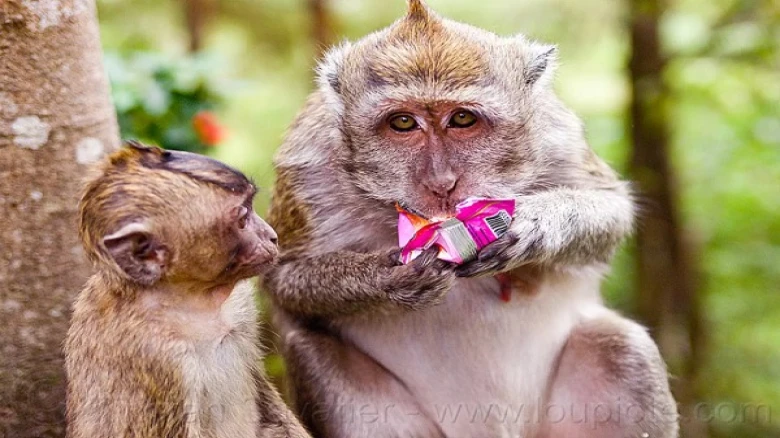Regional

Sikkim government has stated that feeding monkeys or inappropriate disposal of food waste will be considered a violation...
Digital Desk: Feeding monkeys might result in fines, according to a recent public notice published by the Forest and Environment Department of the Government of Sikkim.
According to the Sikkim government's Forest, Environment, and Wildlife Department, feeding monkeys or inappropriately disposing of food waste will be regarded as offences punishable by a 5,000 fine."
"In reality, the Wildlife (Protection) Act of 1972 and the Environment (Protection) Act of 1986 both prohibit feeding monkeys, particularly protected Macaque species," it added.
Sandeep Tambe, Sikkim's Chief Wildlife Warden, declared in a public statement dated August 19 that this is to underline an important matter that concerns everyone's safety and well-being. The number of monkeys (Macaque species) has expanded unnaturally due to poor waste management and human feeding.
This is also an attempt to deal with the increasing instances of Monkey menace and Human-Animal conflict.
According to the survey, these macaques are frequently visiting workplaces, homes, places of worship, supermarkets, and stores instead of spending their time in forests.
Human-giving food products are calorie-dense and easily digestible sources of nourishment, but they also increase stress and create aggression between groups.
Check how to recognise that feeding monkeys and incorrect food waste disposal bring various risks and concerns:
Safety Risks: Monkeys fed by humans lose their anxiety and learn to "associate food with people," becoming infatuated and eventually hostile. Monkeys are wild animals whose behaviour is unpredictable.
Wildlife actions: Feeding monkeys can disturb their natural feeding patterns and behaviours.
Health and sanitation: Feeding monkeys can create an unpleasant environment by accumulating trash and attracting pests, both of which can impair hygiene.
As a result, feeding monkeys might affect their typical feeding patterns and behaviour.
Leave A Comment